This spring, Donizetti’s Don Pasquale returns to our stage in an eye-popping new production from Canadian creative duo Renaud Doucet and André Barbe, whose fresh take on this irrepressible comedy transports audiences on a Technicolor trip to 1960s Rome.
In anticipation of this feel-good event of the season, we’re diving into a brief retrospective of career highlights from the endlessly imaginative team behind the show. Read on to discover why Barbe & Doucet productions are unlike anything else you’ll see at the opera house, and be sure to join us when Don Pasquale opens on April 26!
Since joining forces in 2000, stage designer and choreographer Renaud Doucet and set and costume designer André Barbe have earned an international reputation with over 40 original opera productions famed for their effervescent design, outsized vision, and carefully crafted dramaturgy. Their projects combine a love of the spectacular with a philosophical sensibility that doesn’t shy from engaging with complex questions about what it is to be human—and how art can lead us toward answers.
One of the team’s earliest collaborations was a revival of Massenet’s
Cendrillon (
Cinderella) at the Opéra National du Rhin in 2003. Set in 1950s America, this production used the idea of the American dream to explore what it is to escape the ashes of the past to create a new identity. As the creators asked, “If a blender is able to make one happy, why wouldn’t a Formica table be able to transform itself into a carriage?”
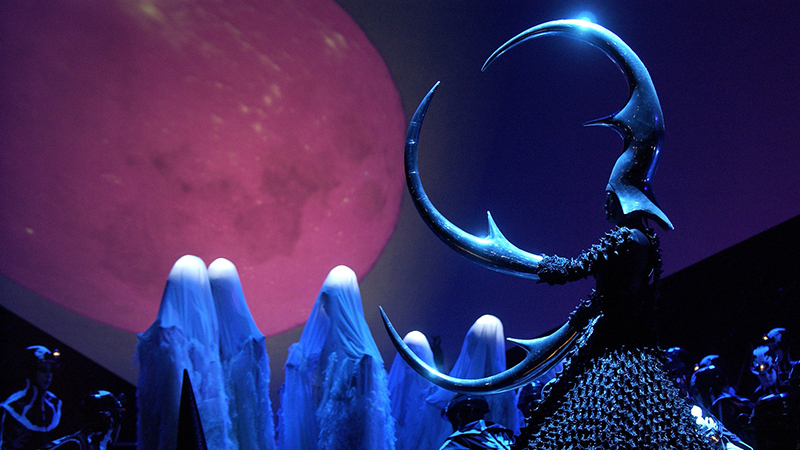
Set in “a phantasmagoric insect world” (Opera News), a 2005 production of Puccini’s Turandot for Volksoper Wien drew on concepts from natural selection to the commedia dell’arte to ask how the social life of insects might illuminate the social life of humans.
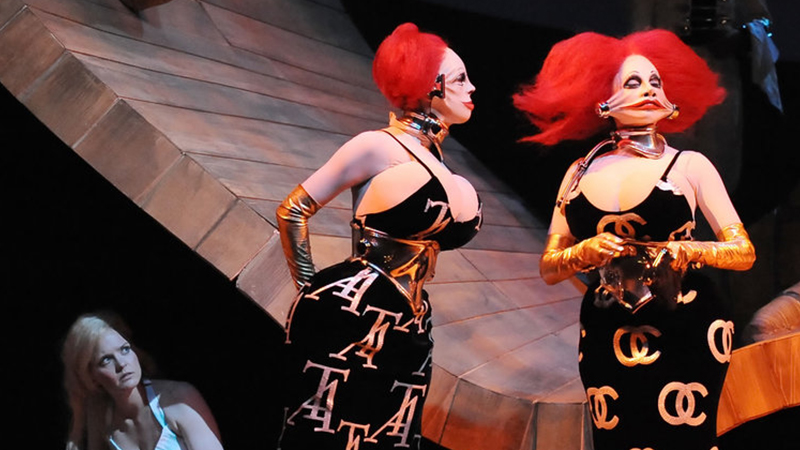
Hyper-consumerism, pollution, and greed threatened to destroy the natural world in this production of Dvořák’s Rusalka (Volksoper Wien, 2010), which served as a fairytale warning about the side-effects of humanity’s relentless pursuit of “the finery of culture.”
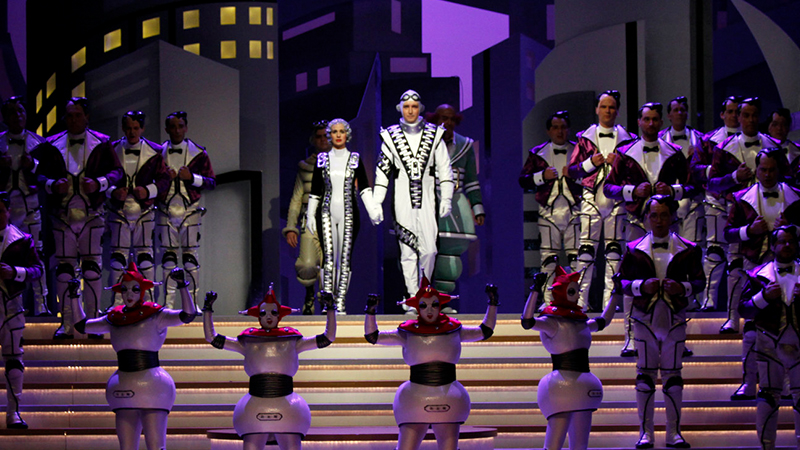
André Barbe was awarded the 2011 Rolf-Mares Prize for best sets and costumes with a new production of Rossini’s La Cenerentola (another operatic version of the Cinderella story) at the Staatsoper Hamburg, which located the action in a retro-utopian future.
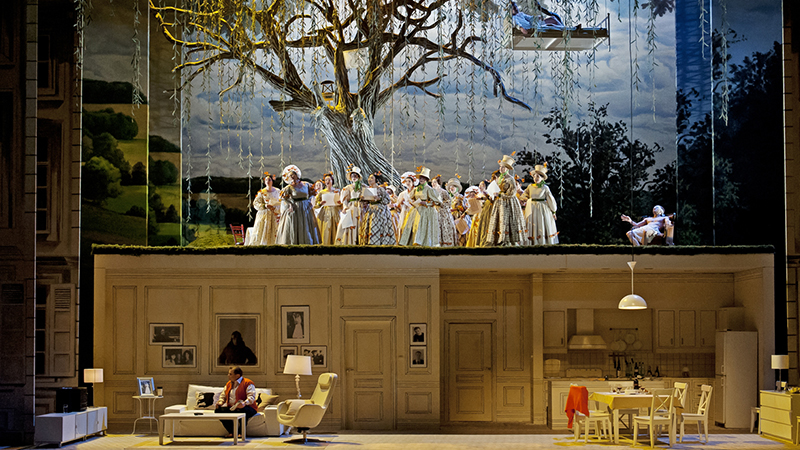
Oper Leipzig opened Wagner’s bicentennial celebrations in 2013 with a new production of the composer’s first completed opera, Die Feen, which featured no fewer than 52 set changes and a reframed storyline in which a man dreams himself through the present day, the 1830s, and the Middle Ages.
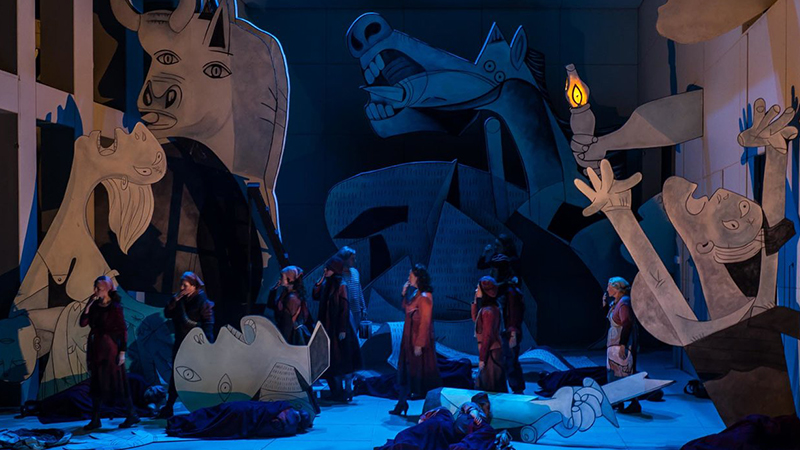
Set in a museum’s restoration workshop, the 2013 production of Massenet’s Thérèse for Wexford Festival Opera used enormous sections of Picasso’s painting Guernica to demonstrate how artistic messages can transcend historical periods from the French Revolution to the present day.
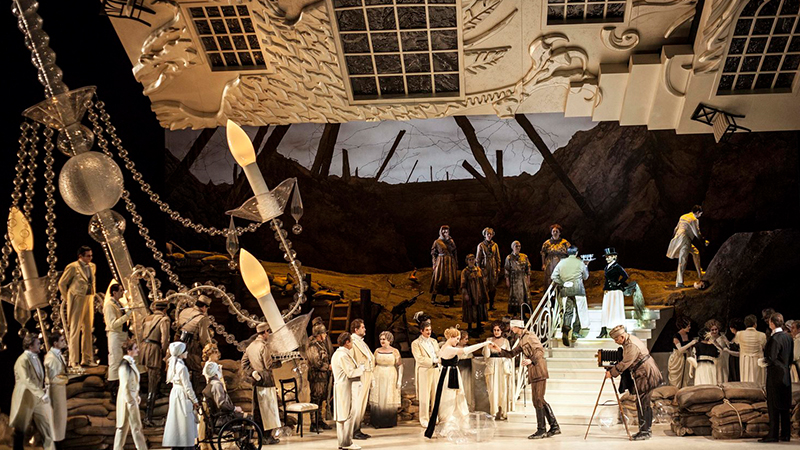
A new production of Richard Strauss’ Arabella (Oper Köln, 2015) exploded the zeitgeist of the belle époque—the period just before the First World War described by Austrian writer Hermann Broch as a “joyful apocalypse.”
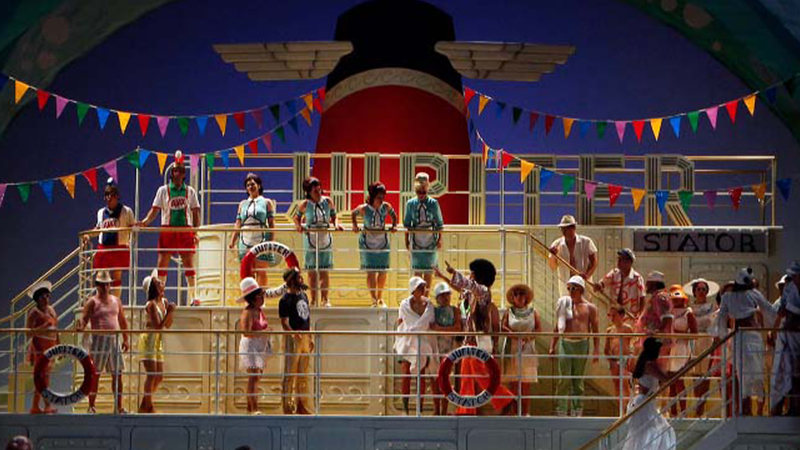
2015’s La Belle Hélène (Staatsoper Hamburg) set the action of Offenbach’s opera on a 1960s cruise ship where, struck on the head by a plaster statue of Adonis, a neglected wife dreams that she is the most seductive woman in ancient Greece.
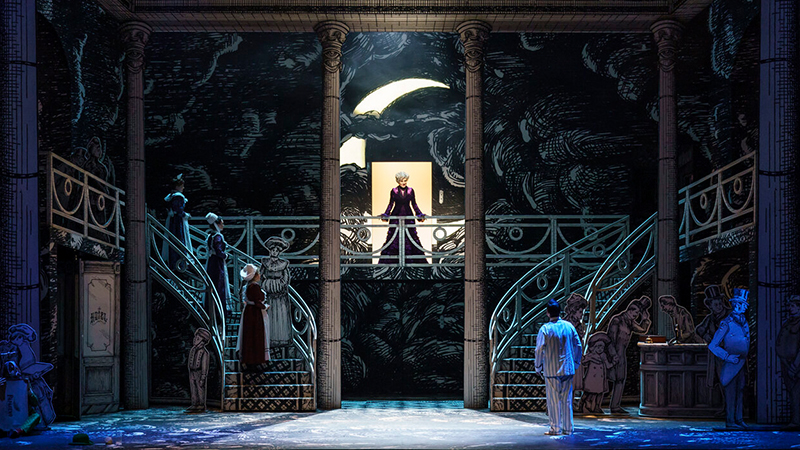
The Sunday Express raved about “the sheer lunacy” of Barbe & Doucet’s production of Mozart’s The Magic Flute—a work the team had previously turned down on three separate occasions.
“We found the libretto deeply problematic–sexist and racist,” explained Doucet after the work’s premiere at Glyndebourne in 2019. “We felt strongly that we either had to find a way to justify and embrace everything, to be truthful to both the music and the text, or not to stage the piece at all.” As a result, this production linked the Queen of the Night’s character to broader themes of women’s rights and the suffrage movement.
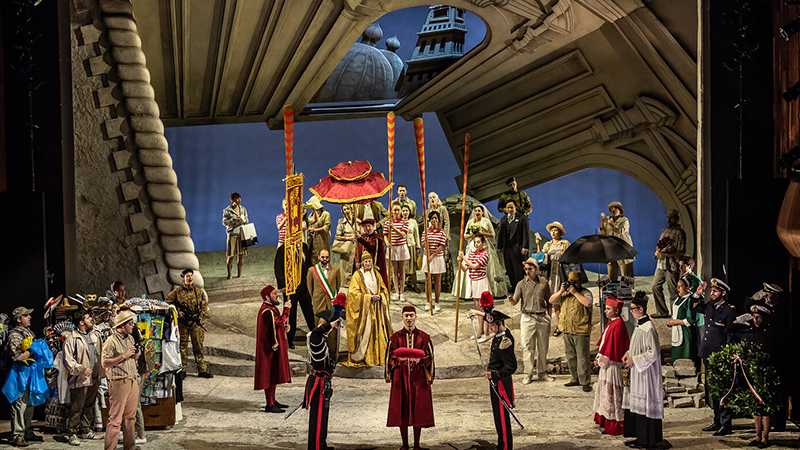
Endlessly inspired by history’s long shadow, as well as by the city of Venice (where they lived for several years), the pair dreamed up a fresh, time-bending take on Mercadante’s Il Bravo. This tale of a man who becomes a hired assassin after killing his wife in a fit of jealousy received The Irish Times Theatre Award 2019 for Best Opera Production.
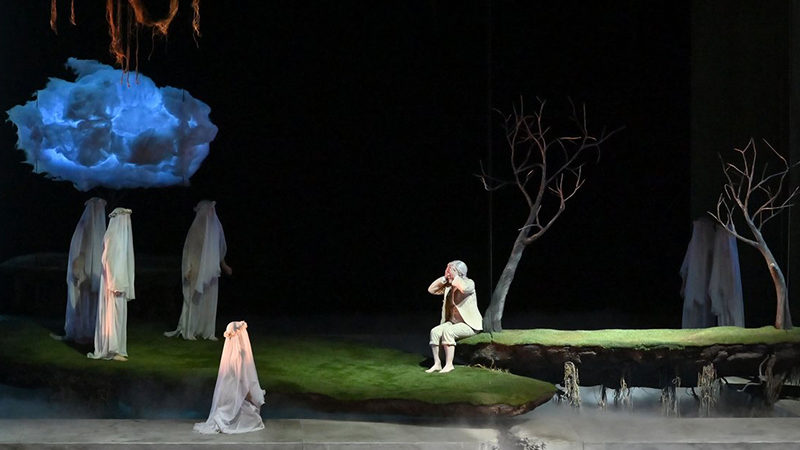
For their production of Debussy’s Pelléas et Mélisande (Teatro Regio di Parma, 2021), the duo explored what it means to be spiritually adrift by incorporating a series of paintings by Symbolist artist Arnold Böcklin into the set design.
And as for
Don Pasquale? In addition to Donizetti’s unmissable score, audiences at our upcoming production can look forward to scene changes that unfold via street-top laundry lines, plenty of Pop Art flamboyance…and of course, those ubiquitous lime-green cats!
Don Pasquale runs from April 26 - May 18, 2024 at the Four Seasons Centre for the Performing Arts.
Get your tickets today!
Photo Credits: KK Dundas, Thierry Ha, Dimo Dimov, Klaus Lefebvre, Kirsten Nijhof, Clive Barda, Bernd Uhlig, Bill Cooper, Wexford Festival
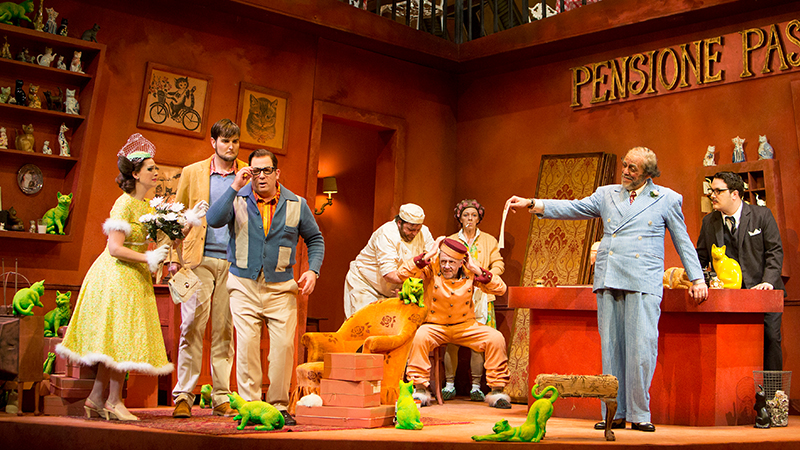
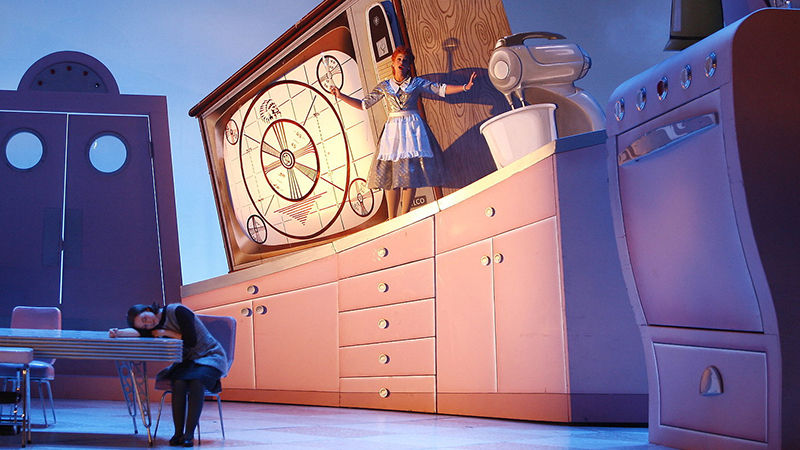 One of the team’s earliest collaborations was a revival of Massenet’s Cendrillon (Cinderella) at the Opéra National du Rhin in 2003. Set in 1950s America, this production used the idea of the American dream to explore what it is to escape the ashes of the past to create a new identity. As the creators asked, “If a blender is able to make one happy, why wouldn’t a Formica table be able to transform itself into a carriage?”
One of the team’s earliest collaborations was a revival of Massenet’s Cendrillon (Cinderella) at the Opéra National du Rhin in 2003. Set in 1950s America, this production used the idea of the American dream to explore what it is to escape the ashes of the past to create a new identity. As the creators asked, “If a blender is able to make one happy, why wouldn’t a Formica table be able to transform itself into a carriage?” Set in “a phantasmagoric insect world” (Opera News), a 2005 production of Puccini’s Turandot for Volksoper Wien drew on concepts from natural selection to the commedia dell’arte to ask how the social life of insects might illuminate the social life of humans.
Set in “a phantasmagoric insect world” (Opera News), a 2005 production of Puccini’s Turandot for Volksoper Wien drew on concepts from natural selection to the commedia dell’arte to ask how the social life of insects might illuminate the social life of humans.








